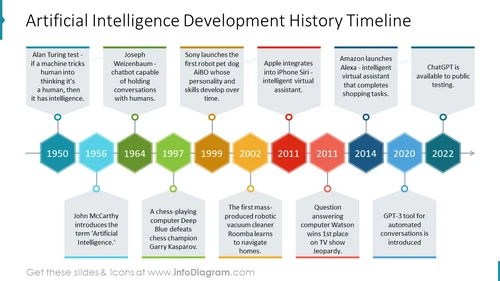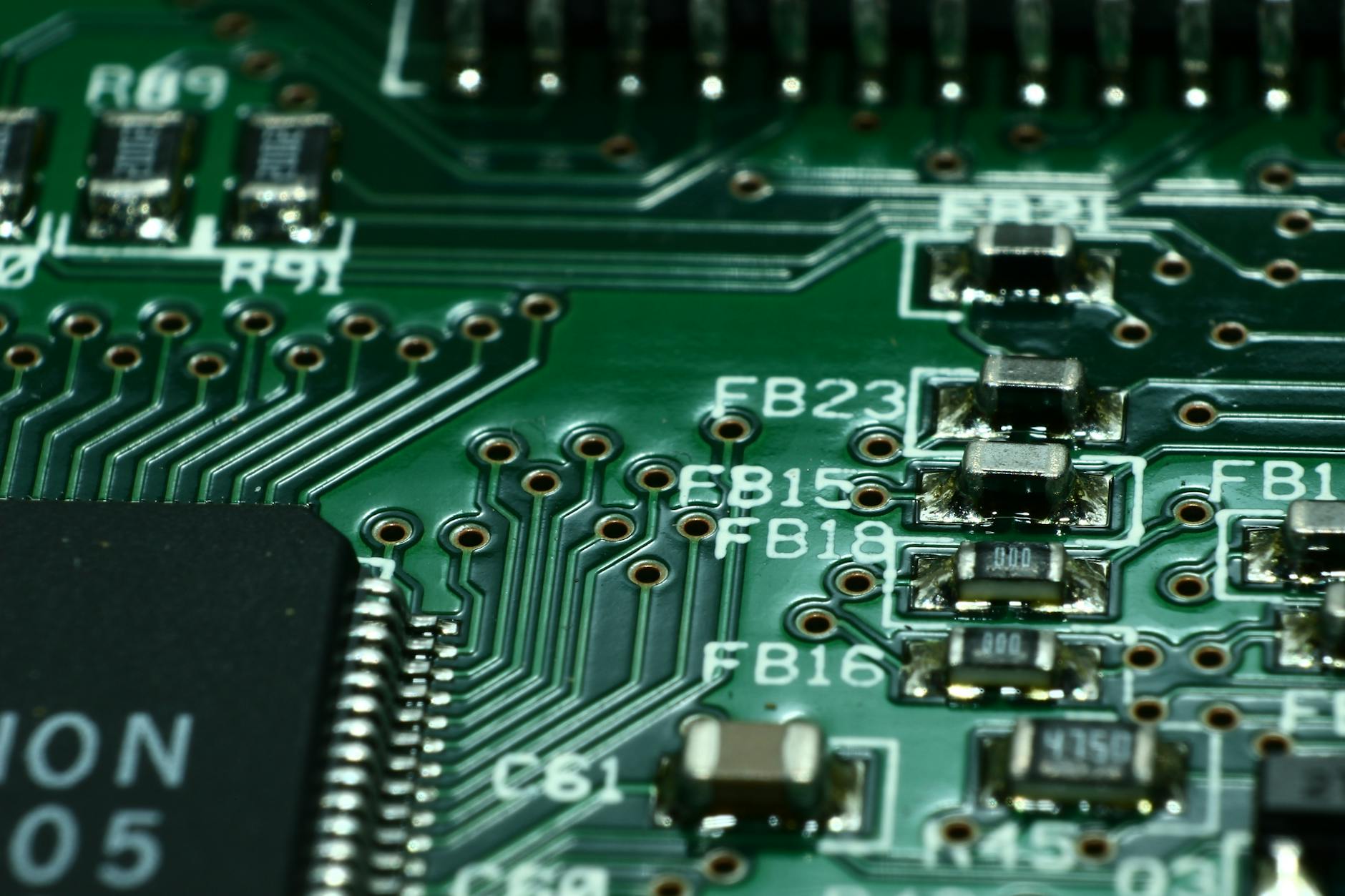Uncover the evolution of artificial intelligence from the iconic Turing Test to its groundbreaking implications in society today. Explore now!
Table of Contents
Artificial Intelligence, or AI, has come a long way since its inception. From the concept of building machines capable of human-like intelligence to the complex algorithms of today, the history of AI is a fascinating journey through innovation and exploration.
Introduction to AI
At its core, AI refers to the simulation of human intelligence processes by machines, primarily computer systems. This includes tasks such as learning, reasoning, problem-solving, perception, and language understanding. The goal of AI is to create machines that can perform tasks that typically require human intelligence.
Historical Context
The concept of artificial intelligence dates back to ancient times, with various myths and folklore depicting intelligent machines. However, the formal development of AI as a field of study began in the early 1950s. One of the most significant milestones in AI history is the Turing Test, proposed by mathematician and computer scientist Alan Turing in 1950.
Over the decades, AI research has evolved, leading to the creation of expert systems, neural networks, machine learning, and deep learning algorithms. These advancements have paved the way for the current applications of AI in various industries and domains.
Current Applications
Today, AI technologies are being used in a wide range of applications, from virtual assistants like Siri and Alexa to self-driving cars, medical diagnostics, and predictive analytics. In healthcare, AI is being utilized for disease diagnosis and personalized treatment plans. In finance, AI algorithms are helping to detect fraud and manage investments more effectively.

Image courtesy of via Google Images
The use of AI in transportation is revolutionizing the way we travel, with autonomous vehicles becoming a reality in many cities around the world. AI-powered recommendation systems are enhancing customer experiences in e-commerce and entertainment platforms. The possibilities are endless, and AI is becoming increasingly integrated into our daily lives.
Benefits of AI
The benefits of AI are vast and impactful. AI technologies have the potential to improve efficiency, accuracy, and productivity across industries. By automating repetitive tasks and analyzing vast amounts of data, AI systems can help organizations make better decisions faster.
AI can also assist in problem-solving and decision-making processes, leading to innovative solutions and advancements in various domains. From optimizing supply chains to enhancing customer interactions, the benefits of AI are transforming the way businesses operate and individuals engage with technology.
Challenges and Ethical Concerns
Despite the numerous advantages of AI, there are also challenges and ethical concerns associated with its development and deployment. One major concern is the potential for biases in AI algorithms, which can lead to discrimination and inequity in decision-making processes.

Image courtesy of via Google Images
Privacy is another critical issue, as AI systems collect and analyze vast amounts of personal data, raising concerns about data security and transparency. Job displacement is also a significant challenge, as automation and AI technologies may replace certain types of jobs, leading to workforce disruptions.
Future Direction
The future of AI holds immense potential for innovation and growth. As research and development in AI continue to advance, we can expect to see even more sophisticated applications and technologies emerge. Predictive analytics, natural language processing, and robotics are just a few areas where AI is poised to make significant advancements.
The integration of AI with other emerging technologies, such as the Internet of Things (IoT) and blockchain, will further amplify its impact across industries. As AI systems become more intelligent and adaptive, the possibilities for enhancing human capabilities and improving quality of life are limitless.
Can Skynet Happen?
The concept of a sentient AI system like Skynet, as portrayed in science fiction films such as “Terminator,” raises fears of a doomsday scenario where AI takes over humanity. While the idea of a malicious AI system gaining control is a compelling narrative, the likelihood of such a scenario occurring in reality is highly debated among experts.

Image courtesy of via Google Images
In reality, the development and deployment of AI technologies are governed by human decisions and ethical considerations. By implementing responsible AI practices, ensuring transparency and oversight, and prioritizing human-centered design, we can mitigate the risks associated with AI and harness its potential for positive impact.
The Role of AI in Society
As AI continues to evolve and permeate various aspects of society, its role in shaping our collective future is profound. From healthcare and finance to education and entertainment, AI is reshaping the way we live, work, and interact with technology. The transformative power of AI lies in its ability to augment human capabilities and drive progress in every sector.
By embracing AI technologies responsibly and ethically, we can harness their potential to create a more sustainable and equitable future for all. As we navigate the complexities of an AI-driven world, collaboration, innovation, and a commitment to ethical principles will be key to unlocking the full benefits of artificial intelligence.
Responsible AI Development
Responsible AI development is essential for ensuring that AI technologies are developed and deployed in ways that prioritize human well-being and societal good. This includes promoting fairness, transparency, and accountability in AI systems, as well as addressing ethical considerations and potential biases in algorithms.

Image courtesy of via Google Images
By establishing guidelines and standards for AI development, governments, organizations, and individuals can ensure that AI technologies are used responsibly and ethically. Collaboration among stakeholders, including researchers, policymakers, and industry leaders, is crucial for shaping the future of AI in a way that benefits society as a whole.
Conclusion
In conclusion, the world of artificial intelligence is vast, complex, and full of exciting possibilities. From its humble beginnings in the concept of intelligent machines to the sophisticated algorithms of today, AI has the potential to transform every aspect of our lives. By understanding the history, current applications, benefits, challenges, and ethical concerns of AI, we can navigate this evolving landscape with knowledge and awareness.
As we look to the future of AI, it is essential to approach its development and deployment with caution, responsibility, and a commitment to ethical principles. By embracing the opportunities that AI presents while addressing the risks and challenges it poses, we can harness the power of artificial intelligence to create a better world for present and future generations.



Comments